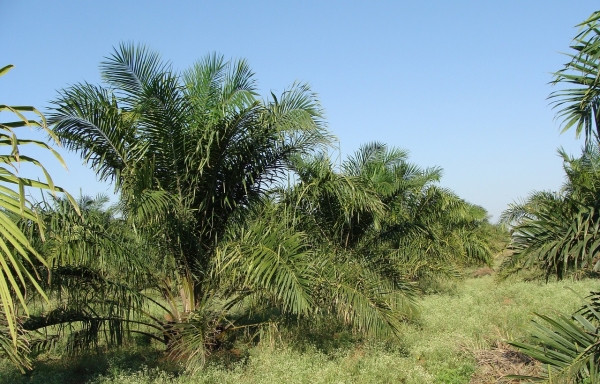Researchers at UMass Amherst find Indigenous populations bear the environmental and public health costs when native Indonesian forests are converted to oil palm plantations.
Researchers at UMass Amherst find Indigenous populations bear the environmental and public health costs when native Indonesian forests are converted to oil palm plantations.
The global demand for palm oil—the most widely consumed vegetable oil on the planet, in everything from instant noodles to lipstick—is driving worldwide tropical deforestation. While many studies have shown the loss of biodiversity when rainforests are converted to oil palm plantations, researchers at the University of Massachusetts of Amherst are the first to show far-reaching and wide-ranging disturbances to the watersheds in which such plantations occur. Because many Indigenous peoples rely on water downstream from the plantations for their daily needs, the marked decrease in water quality has the potential to exacerbate public health issues in Indigenous communities. The study was published recently in Science of the Total Environment.
To conduct their research, lead author Briantama Asmara, who completed this work as part of his graduate studies at UMass Amherst, and senior author Timothy Randhir, professor of environmental conservation at UMass Amherst, focused on the Kais River watershed of West Papua, the western half of New Guinea’s island, an area of more than 1,000 square miles. Approximately one-quarter of the watershed has been turned into oil palm plantations. The watershed is also one of the oldest continually inhabited homes for different groups of Indigenous Papuans.
Read more at University of Massachusetts Amherst
Photo Credit: sarangib via Pixabay




